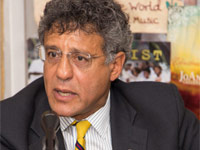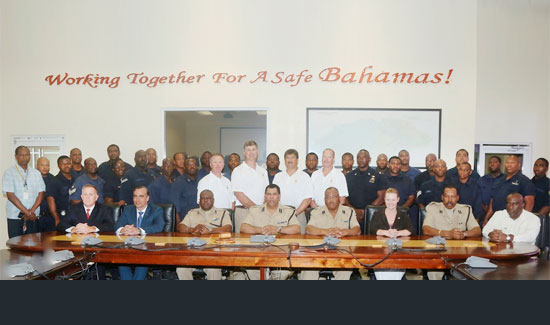Nassau, The Bahamas — Generational property landowners can rest assured that they will receive Government protection for the legal right to land titles given to them by ancestors.
Many residents in the Family Islands have been living in limbo, due to the lack of proper entitlement that protects them in the succession of generational property.
“Some of you are caught up in occupation of what is known as generational land, that is land initially granted to your ancestors who died in testate or without leaving a Last Will and Testament,” said the Hon Byran Woodside, Minister of State for Lands and Local Government.
“Therefore, though the offspring may occupy the land, no free hold title can be had by anyone, except in very peculiar circumstances, where all the interested parties agree for the distribution of the land in question, thus, allowing for proper survey and drawing up of conveyances.”
The new 2010 Land Adjudication Bill gives these landowners the legal power to contest the absence of a Last Will and Testament in a court of law. It resolves issues concerning land succession rights to lands on which these owners are currently living.
The Government is correcting the loophole that exposes rightful owners to exploitation of the “no free hold title” problem. These new land titles will give Bahamian landowners the option to market the land.
“The Adjudication Bill will provide a forum for families to petition the Adjudication Officer to hear their claim and make a decision, which will allow them to be awarded a certificate of title that is marketable,” said Mr. Woodside.
Prior to a growing illegal immigration problem, estate-planning measures were not previously required because succession was automatically assumed within Bahamian families.
However, the phenomenon of illegal squatters reportedly abusing the 1925 Quieting of Titles Act has positioned the Government to deflect the opportunity for exploitation, particularly in remote areas of the Family Islands.
“In the past, the provisions of the Quieting of Titles Act have been the bedrock of dealing with contentious land matters. This is a costly undertaking, since it requires the attendance before a Supreme Court judge,” said Mr. Woodside.
“Quiet matters often drag on for years and families who do not have the means to continue the matter end up losing what is rightfully their birthright. For the Family Island resident, this could prove to be a nightmare, as cost doubles and sometimes triples with travel, accommodations, and other incidental and legal costs could amount to equal the value of the land in contention.”
For the last 40 years, Bahamians have been disturbed by the rising complications and costs to protect their lands.
“Many times, Family Island residents give in, not because they do not believe in their fight for what may prove to be rightfully theirs, but because it becomes too prohibitive for them to continue,” said Mr. Woodside.
The Government’s Manifesto is committed to addressing the outstanding land issues. Its disposition is outlined in the Land Use Policy and Administration Project (LUPAP), which were completed in October 2009.
With new technology to record cadastral data and satellite images of land boundaries, the 2010 Bill also combines the efforts of the Lands and Surveys Department, the Department of the Registrar General and the Valuation Section of the Department of Real Property Taxes.
The digital information can be handled to produce other necessary information that protects the interests of the Bahamian people.
Gena Gibbs
Bahamas Information Services



